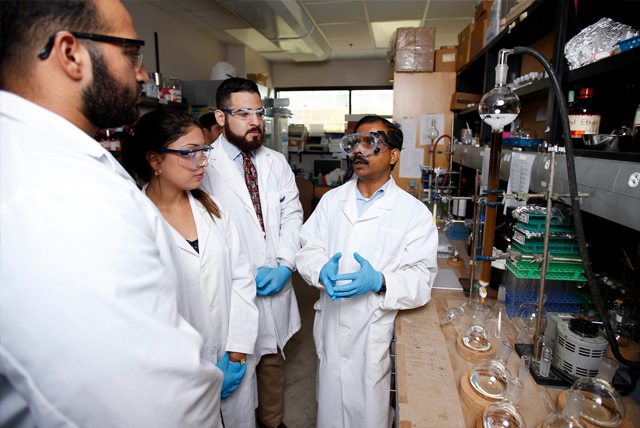Document Type
Article
Publication Date
8-24-2022
Abstract
Massive plastic pollution and grand scale emission of CO2 into the atmosphere represent two major and deeply connected societal challenges, which can have adverse impacts on climate, human health, and marine ecosystems. In particular, the COVID-19 pandemic led to substantially increased production, use, and discarding of disposable masks, a problem that requires urgent and effective technological solutions to mitigate their negative environmental impacts. Furthermore, over the years significant research efforts have sought to address the challenges of plastic waste and CO2 emission, such as development of chemical upcycling methods and low-cost CO2 capture sorbents at scale, respectively. In this work, we introduce a simple and scalable method for directly converting surgical polypropylene mask waste into sulfur-doped carbon fibers, which can exhibit a high CO2 sorption capacity of ≤3.11 mmol/g and high selectivity (>45) against N2 gas. This excellent performance is attributed to the high affinity between sulfur heteroatoms in the carbon framework and CO2 gas molecules, confirmed by combined experimental and simulation investigations. This work provides an industrially viable approach for upcycling plastic waste into carbon-based products with increased value, which can then be employed to address the environmental challenges of CO2 remediation.
Recommended Citation
Robertson, Mark, et al. "Upcycling Mask Waste to Carbon Capture Sorbents: A Combined Experimental and Computational Study." ACS Applied Engineering Materials (2022). https://doi.org/10.1021/acsaenm.2c00030
Creative Commons License

This work is licensed under a Creative Commons Attribution-NonCommercial-No Derivative Works 4.0 International License.
Publication Title
ACS Applied Engineering Materials
DOI
10.1021/acsaenm.2c00030



Comments
© 2022 American Chemical Society.